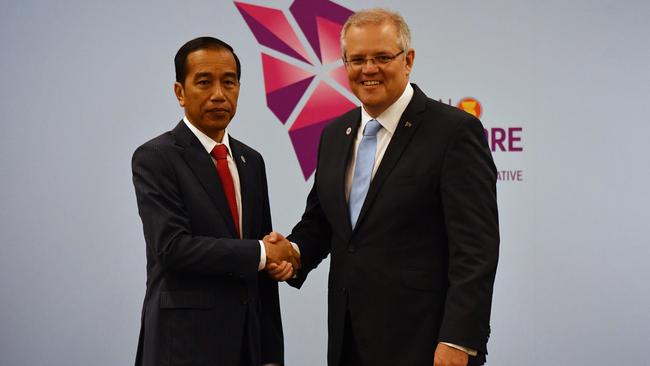Indonesia’s trade boycott threat over Jerusalem recognition
Muslim groups in Jakarta warn that any move by Australia to recognise Jerusalem as Israel’s capital would spark boycotts.

The Indonesian Muslim groups behind a one-million-strong rally in Jakarta this month have warned that any move by the Australian government to formally recognise Jerusalem as Israel’s capital — even if the embassy remains in Tel Aviv for now — would spark mass protests and a boycott of Australian products.
The warning follows confirmation from senior Australian government sources this week that a final decision has been made to defer the costly and controversial relocation of Australia’s embassy to Jerusalem.
It is likely to formally recognise the city as Israel’s capital and establish a consulate there instead, though it was unclear if it would recognise West Jerusalem specifically or Jerusalem more broadly. The government has yet to formally announce its decision following a high-level policy review, but is expected to do so within days.
Indonesia’s 212 Brotherhood and firebrand Islamic Defenders Front (FPI), the two main groups behind the successful push to jail former Jakarta governor Basuki Tjahaja “Ahok” Purnama for blasphemy and this month’s massive reunion rally, said yesterday the proposal would be “worse than the embassy move”.
“This is an outright recognition of Israel’s claim for Jerusalem, Islam’s third-holiest city and the home of the Al Aqsa mosque,” FPI spokesman Novel Bamukmin told The Australian, vowing rolling mass demonstrations outside the Australian embassy in Jakarta should the proposal go ahead.
“The FPI and other Muslim groups will not stay quiet, not only in Indonesia but around the world. We will call for a boycott of Australian products and we will call the Indonesian government to cut all ties with Australia.”
212 chairman Slamet Ma’arif echoed those threats, telling The Australian: “We will do whatever it takes. We will stage rallies, we will call for a boycott. We will even call for Indonesia to cut ties with Australia. It is time to test the government’s claims that they will prioritise Palestine’s interests and fight for Palestine’s independence.”
Robikhin Emhas, the executive chairman of Indonesia’s largest Muslim organisation, Nahdlatul Ulama, said NU would not support mass protests or boycotts “at this moment”, but would encourage the Indonesian government to “persuade Australia to reverse” such a decision.
Scott Morrison had promised to advise Indonesian President Joko Widodo, who faces an April election amid rising Islamic conservatism and nationalism, before Christmas of the government’s decision on an issue that has again strained relations with Indonesia, a strident supporter of the Palestinian cause.
Jakarta has said relocating the embassy would harm bilateral relations, and has deferred signing the Indonesia Australia Comprehensive Economic Partnership Agreement pending assurances that Canberra will not go ahead with the move.
But if the Prime Minister had hoped his compromise solution would ease tensions with one of Australia’s most important neighbours, the warning from Islamic groups should raise concerns in Canberra.
Political analyst Hendri Satrio said formal recognition of Jerusalem would keep the issue alive during the election campaign and raise security risks.


